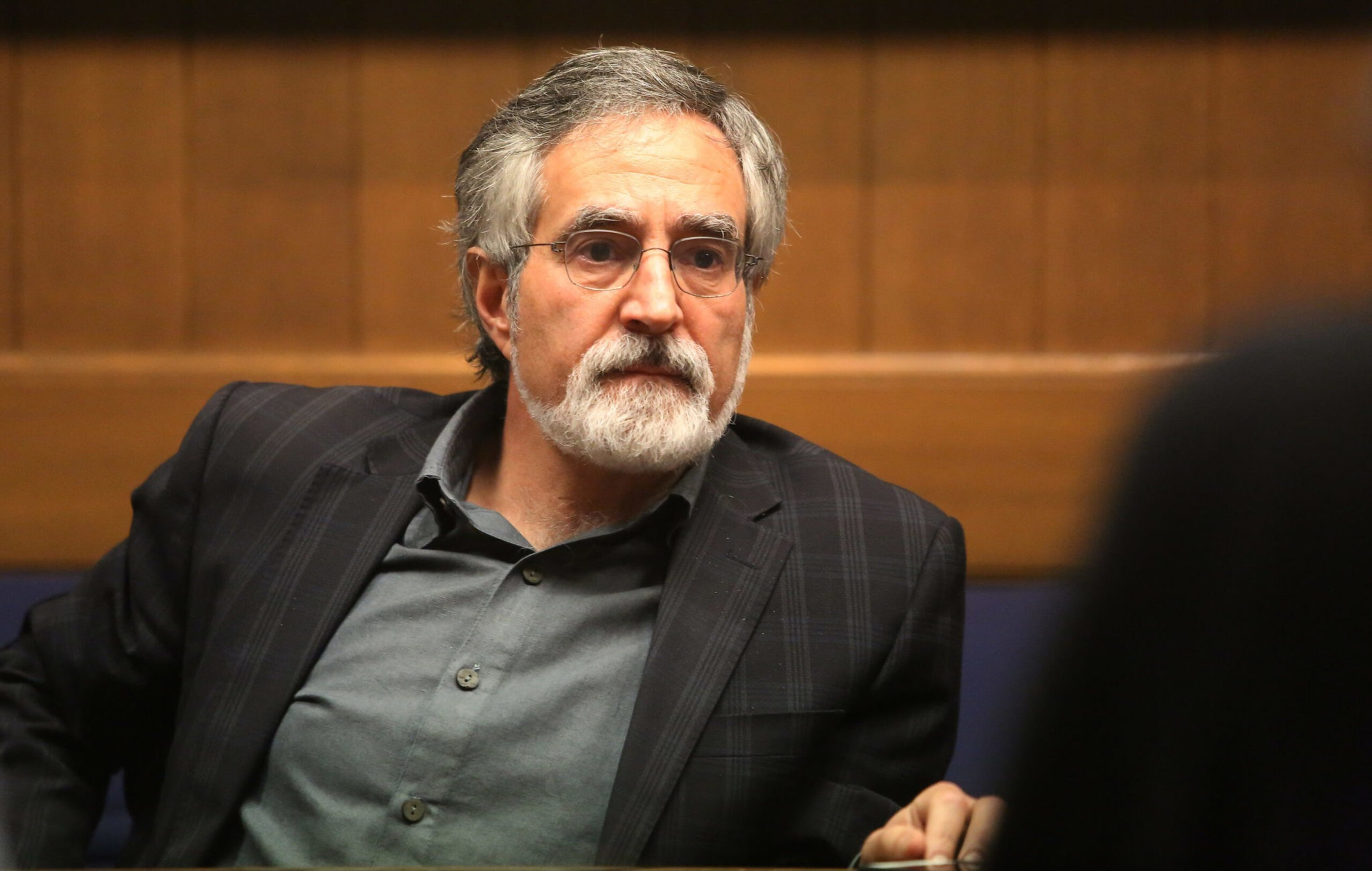Nearly two years after a federal investigation laid bare the prevalence of pay-to-play politics at City Hall, San Francisco supervisors are considering closing a loophole in local fundraising laws that allows officials to shake down contractors who are doing business with the city.
The Board of Supervisors is expected to decide Tuesday whether top city officials, both elected and appointed, should be barred from soliciting donations from contractors and other individuals who do business with their departments, with certain exceptions. Such donations have sometimes functioned as bribes, federal prosecutors say.
The proposed legislation, from supervisors Matt Haney and Aaron Peskin, builds on recommendations from the Ethics Commission (opens in new tab) and Controller’s Office (opens in new tab). It was first introduced by Haney more than a year ago, in September 2020, in the wake of corruption allegations surrounding former Public Works head Mohammed Nuru.
“The basic principles are pretty simple,” Peskin said of the legislation Monday at a board committee hearing. “We should not be putting ourselves or other city officials in positions of raising money from the people and parties that are seeking financial benefit from us. This dynamic has frankly been allowed to persist for too long.”
The idea is to avoid arrangements like the one Nuru and other Public Works employees had with the nonprofit San Francisco Parks Alliance and Recology, the trash-hauling giant that holds a monopoly on garbage collection in San Francisco.
Nuru solicited donations from Recology’s San Francisco companies that were funneled through another nonprofit, the San Francisco Clean City Coalition, to an account at the Parks Alliance, according to the U.S. Attorney’s Office and the Controller’s Office. Nuru and others then used the funds to buy merchandise for staff and help fund holiday parties. The Parks Alliance’s stated mission is to raise private funds to support city parks.
Federal prosecutors say the arrangement amounted to a conspiracy to bribe Nuru, since Recology was at the same time seeking his help raising city garbage rates.
(Nuru is facing a federal fraud charge, while the Recology companies have admitted to conspiring to bribe him under a deferred prosecution agreement with the U.S. Attorney’s Office. The Parks Alliance and Clean City Coalition have not been charged.)
“We really have a long overdue duty to act locally to cut this behavior out of our government,” Peskin said at the committee.
City officials are currently barred from soliciting gifts that they receive from people with business before them, or who are registered lobbyists. But those restrictions don’t apply to another type of donations known as “behested payments.”
That means officials are allowed to solicit donations from individuals who would otherwise be restricted from giving them a gift, as long as the payment is made on their behalf to a third-party organization, like a nonprofit.
Local and state law only requires certain officials to report behested payments, depending on their amounts, and does not restrict them.
The proposed legislation (opens in new tab) from Haney and Peskin would bar elected officials, department heads and commissioners from soliciting behested payments from a bevy of “interested parties,” including city contractors, lobbyists and others who seek to influence them.
The legislation includes a number of exceptions, such as for nonprofits that support the arts and culture, and for individuals who attempt to influence public officials by speaking at rallies but have no financial ties to the issue in question. The nature of these exceptions is expected to be a key issue at the Board on Tuesday.
Reached by phone, Haney told the SF Standard that behested payments can foster “casual corruption” between city officials and contractors.
“What happened with Nuru was a very extreme version of this, but even at the lower levels it can lead to more of a culture of corruption where contractors have cozy relations with department leaders in ways that give them favorable treatment,” Haney said.
At the committee hearing Monday, the legislation was advanced to the full board in a 2-1 vote, with Peskin and Supervisor Connie Chan in support. Supervisor Rafael Mandelman said he had concerns about the legislation having “unexpected consequences,” but would consider changing his vote at the full board Tuesday.
“This is not actually a bright-line rule, this is not a ‘supervisors are going out of the business of fundraising from private parties,’ but it is creating some new rules around how that will work,” said Mandelman, the sole dissenting vote at the hearing.
Debbi Lerman, director of the Human Services Network, an association of nonprofits, criticized the legislation for being overly broad. At the hearing, she called on the supervisors to strike a balance between addressing ethics issues and protecting legitimate fundraising.
Narrowing who is considered an interested party “will be very important in making this a workable and enforceable piece of legislation, without the unintended effects of sweeping up hundreds of people who express their opinions on an issue, and without creating those gotcha moments for public officials,” Lerman said.
Peskin said it was important for the legislation to reach the full board for a vote Tuesday, because the Ethics Commission was otherwise expected to consider placing the proposal on the ballot next year if the supervisors did not take action.
In addition to Haney and Peskin, the legislation is co-sponsored by Chan and Board of Supervisors President Shamann Walton.
